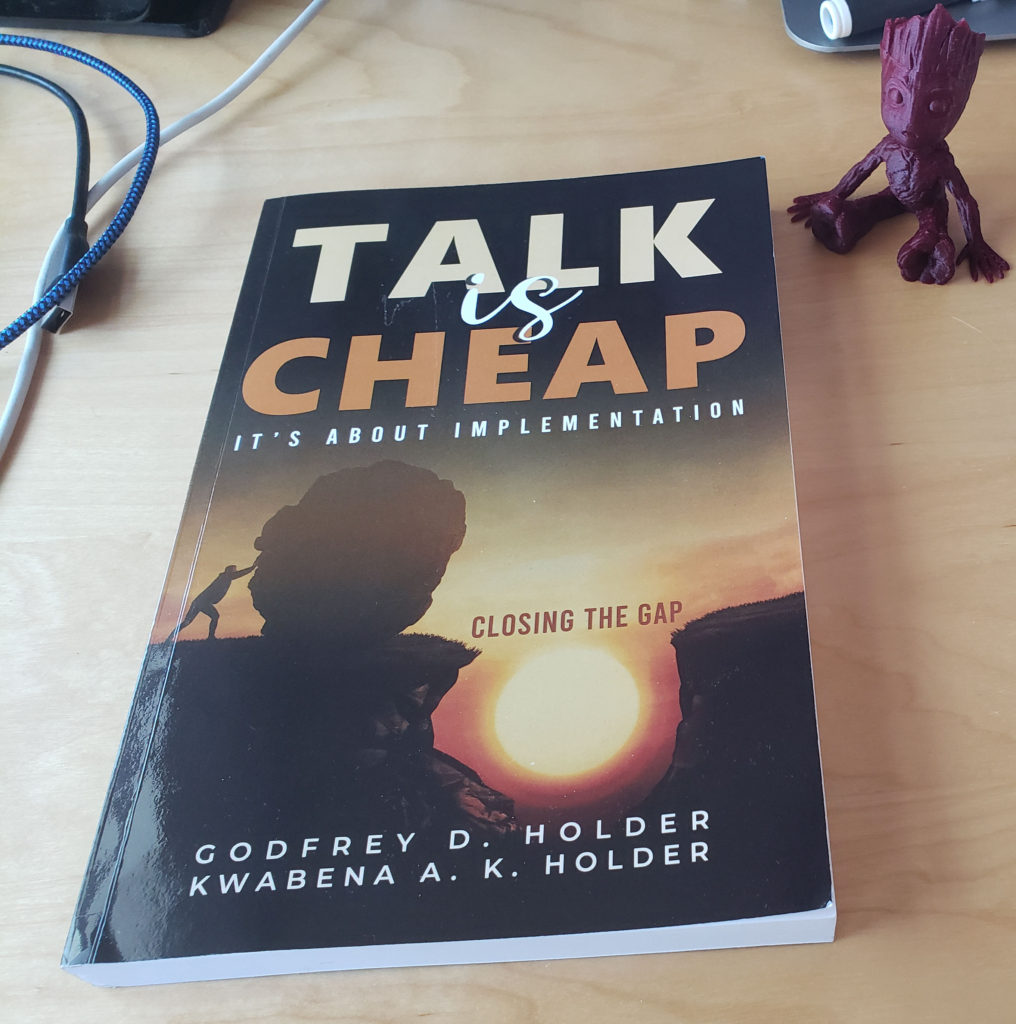I’ll start off with a quick disclaimer that I was given a signed copy of the book by Kwabena Holder, who I have the privilege of knowing through the Philadelphia Software Leadership Bookclub. So I went into Talk is Cheap with some high expectations, which I was happy to see more than met.
You might expect this book to lay out a set of rules or guidelines for successful strategy implementation. Instead, the essential argument the Holders present is that the vast majority of strategic initiatives fail because they are designed by executives without consulting the people who will actually do the work to bring the strategy to life. The “steps” to successful implementation really come down to including the entire staff in determining what strategy should be implemented.
While the Holders don’t present a step-by-step list for strategy implementation, what they deliver is far more valuable: a set of guidelines for building a highly collaborative culture where people are incented to perform and are free to voice ideas which are then seriously considered. At times, this can come across as a guide to leadership rather than strategy, as in the excerpts below.
Good leaders excel at motivating others to carry out their tasks. Great leaders duplicate themselves. They build leadership cultures, raise their members’ performance, and recruit leaders from all levels of their organizations. These leaders go out of their way to find and develop the hidden leadership talents in their organizations
Culture is the ground in which human beings grow. A company’s culture is its personality and is similar to what makes a person unique, different, and ultimately what makes others like, or even dislike, a person. Culture defines mission, values, goals, and the overall “vibes” of how it expects employees to behave, act, and produce results — often described as “who we are and how we do things around here.”
But the great thing about having these tips in the framework of a discussion about strategy is the constant reminder about how these things matter to successfully implementing strategy. The book gave me a new lens to look through my own previous experiences, and I’m grateful to have that lens moving forward. And I certainly don’t want to leave you with the impression that the book offers no specific advice on strategy. Here is one insight I took away from the book:
The American Society of Training and Development studied the impact of accountability on goals and found the probability of success as being:
- 10% if you simply have an idea or goal
- 25% if you consciously decide you will do it
- 40% if you decide when you will do it
- 50% if you plan how you will do it
- 65% if you make a promise to others
- 95% if you have an accountability coach to whom you’ve committed.
Overall, I found Talk is Cheap to be a thought provoking and useful book; well worth adding to your leadership toolbench.
